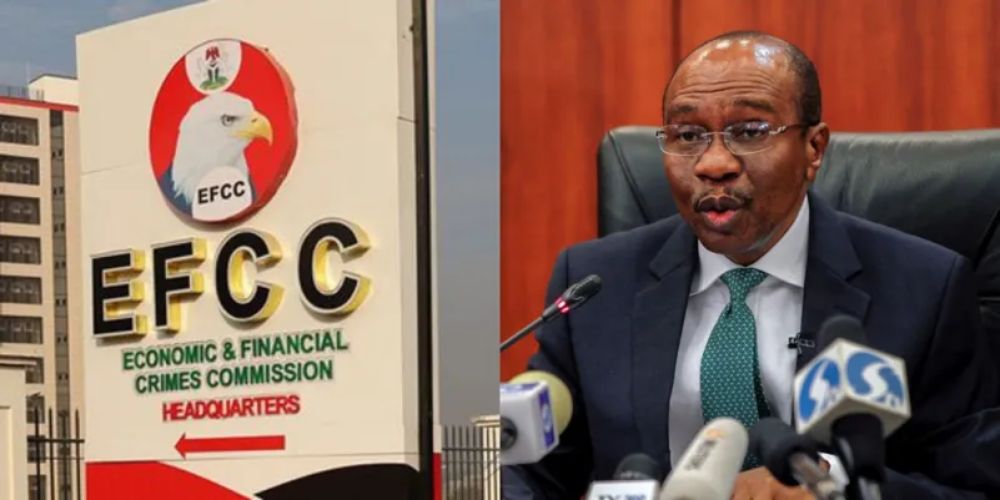...To get all news updates, Join our WhatsApp Group (Click Here)
Also Join our WhatsApp Channel (Click Here)
By Pelumi Olajengbesi, Esq.
That a single individual—a public officer entrusted with fiduciary responsibilities—could engage in such egregious financial misconduct in a country where millions still grapple with abject poverty is both astounding and unacceptable. This is, indeed, a case of unimaginable recklessness that underscores the urgent need for unwavering vigilance in the fight against corruption.
The landmark ruling of the Federal Capital Territory High Court affirming the final forfeiture of a sprawling 150,500 square-meter estate, comprising 753 duplexes and apartments in Abuja’s Lokogoma District, marks a watershed moment in Nigeria’s ongoing battle against corruption. This unprecedented recovery—being the largest ever achieved by the Economic and Financial Crimes Commission (EFCC) since its establishment in 2003—epitomizes the Commission’s unwavering resolve to combat economic and financial crimes.
The judgment, meticulously delivered by the distinguished Justice Jude Onwuegbuzie on December 2, 2024, is a significant affirmation of the integrity of Nigeria’s legal architecture governing civil forfeiture. Invoking Section 17 of the Advance Fee Fraud and Other Fraud Related Offences Act No. 14 of 2006 and Section 44(2)(b) of the 1999 Constitution of the Federal Republic of Nigeria, the EFCC successfully demonstrated that the property in question was procured through illicit means. The respondent’s failure to substantiate any legitimate source of acquisition rendered the forfeiture order both inevitable and necessary, thereby reinforcing the principle that proceeds of unlawful activity are liable to seizure in the interest of justice.
Having reviewed the court processes culminating in this judgment, I can confidently assert that this legal milestone underscores the strategic shift within the EFCC under the astute leadership of its Executive Chairman, Mr. Ola Olukoyede. The success of this forfeiture is not only commendable but also indicative of a paradigm shift in the Commission’s approach to tackling high-level corruption. Yet, it also raises a critical concern: despite these victories, the persistence of corruption suggests that more fundamental reforms are needed.
The prosecutorial ingenuity of Rotimi Oyedepo (SAN) and the entire EFCC legal team exemplifies the level of expertise required to unravel complex financial crimes involving politically exposed persons. However, while this case highlights the importance of asset recovery and prosecution, it also underscores a sobering reality—the fight against corruption in Nigeria has yet to dismantle the systemic structures that enable it to thrive.
The estate, located on Plot 109, Cadastral Zone C09, has been linked to the former Governor of the Central Bank of Nigeria (CBN), Mr. Godwin Emefiele, and a network of associates allegedly involved in a complex scheme of illicit enrichment through kickbacks and foreign exchange manipulations. The meticulous investigation revealed that the former CBN Governor leveraged his office to solicit unlawful commissions from contractors and facilitated preferential access to foreign exchange for personal gain.
This sophisticated scheme of economic sabotage underscores the necessity of robust civil forfeiture mechanisms, which allow the state to seize assets without the burden of securing criminal convictions. Yet, while civil forfeiture is a potent legal tool, it is not a panacea. The fact that such brazen acts of corruption persist, even after decades of anti-corruption initiatives, suggests the need for a more holistic and preventive approach.
The success of the EFCC in this matter signifies an evolution in the jurisprudence of asset recovery in Nigeria. But it also highlights a deeper issue: asset forfeiture and criminal prosecution alone cannot eradicate corruption. More emphasis must be placed on preventive measures, institutional transparency, public accountability, and a cultural shift that deters corruption from the outset.
The forfeiture aligns seamlessly with the anti-corruption mandate of the administration of President Bola Ahmed Tinubu, which emphasizes transparency, accountability, and adherence to the rule of law. However, sustaining this momentum will require more than just prosecutorial successes. It demands a comprehensive strategy that addresses the root causes of corruption, including weak institutions, political interference, and a lack of public trust in governance.
In conclusion, I extend my highest commendation to the EFCC’s leadership, legal team, and investigative officers for their exemplary dedication to the pursuit of justice. This landmark forfeiture serves as a beacon of hope for a nation striving to extricate itself from the grip of systemic corruption. It is a testament to the fact that, with legal diligence and unwavering resolve, the rule of law can prevail over impunity.
Nevertheless, let this success also serve as a clarion call to all stakeholders—legal professionals, public officials, civil society, and citizens alike—that the fight against corruption requires continuous vigilance, innovation, and reform. The proceeds of corruption must not only be pursued and recovered but prevented from being amassed in the first place.
The EFCC’s triumph in this matter is a reminder that justice, though sometimes delayed, is never denied to those who remain steadfast in its pursuit. But to truly emerge as a bastion of justice, transparency, and good governance, Nigeria must evolve its anti-corruption framework from one that reacts to corruption to one that prevents it. Only then can we build a nation where public service is synonymous with integrity and accountability, and where the Nigerian people are the rightful beneficiaries of their nation’s wealth.
Pelumi Olajengbesi Esq. is a Legal Practitioner and Managing Partner at Law Corridor
You can get every of our news as soon as they drop on WhatsApp ...To get all news updates, Join our WhatsApp Group (Click Here)
Also Join our WhatsApp Channel (Click Here)

















